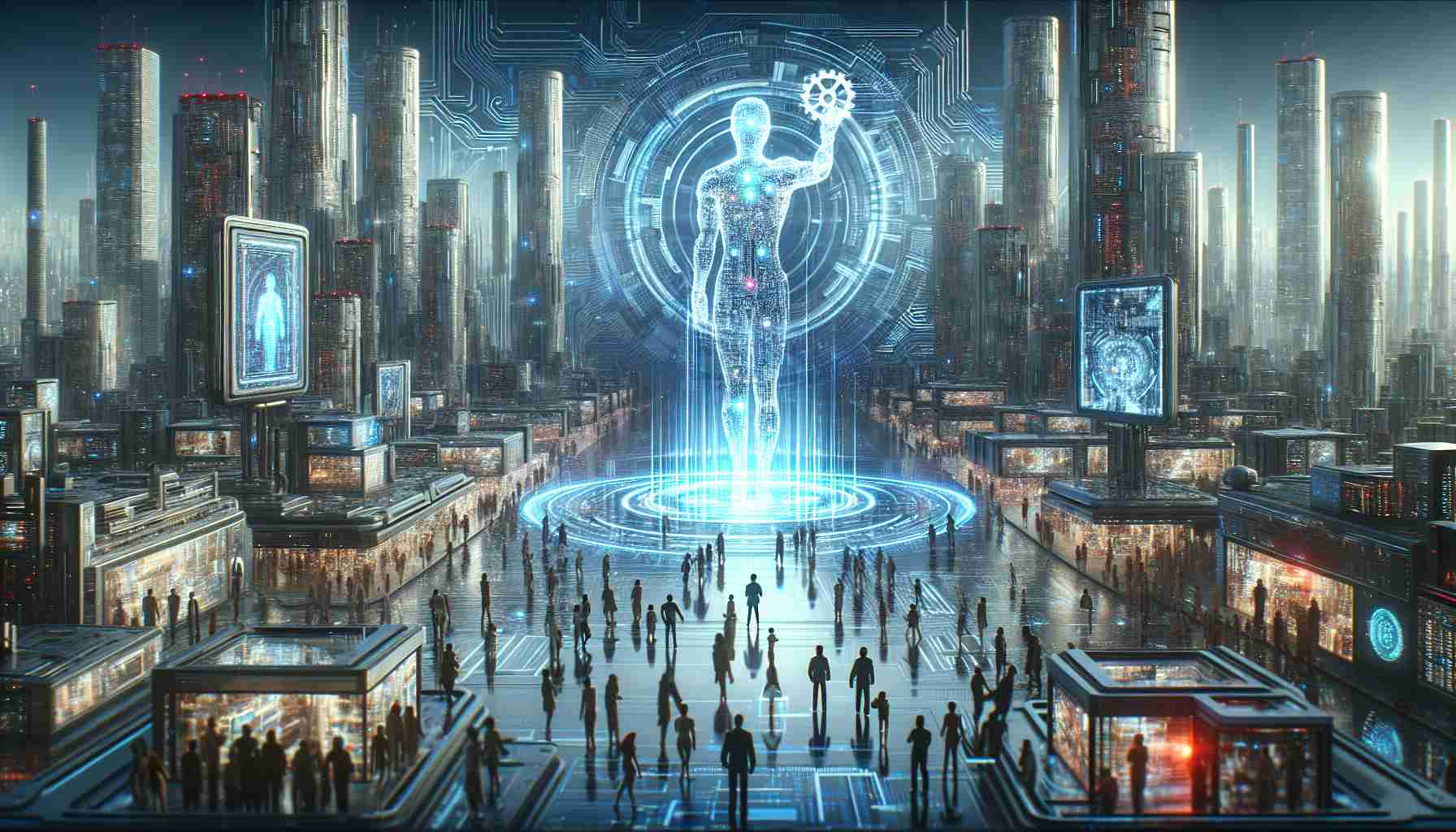The dawn of the intelligent era signals transformative changes in daily life, commerce, and global connectivity. Embracing the power of smart technologies, notably 5G, cloud, and AI, is crucial as the fourth industrial revolution unfolds.
These technologies have flourished in-depth, prompting an urgent call to nations worldwide to integrate swiftly into the evolving digital landscape. The significance of such advancements was highlighted at the GSMA M360 Eurasia 2024 conference in Baku, where the focus was placed on digital acceleration in the CIS region and beyond.
Advancements in Azerbaijan’s technological sphere were celebrated, with the nation rising as a beacon of innovation. Its strategic location is pivotal for land transit projects, and its communication infrastructure continues to evolve, earning it seats within the ITU’s prestigious councils.
The ITU’s Regional Director for the CIS pointed out a digital divide, with 2.6 billion people still offline, despite the exponential growth of the digital economy.
The path to a connected and intelligent future involves laying down the foundation for Gigabit Cities, expanding 5G networks, and fostering new business capabilities within this spectrum. Huawei’s President for the Middle East and Central Asia region emphasized the expeditious allocation of 5G spectrums and the cultivation of talent as prerequisites for this journey. Huawei envisions a world by 2030 brimming with sustainable practices, efficient living spaces, and cutting-edge digital services.
Technology paving the way for reduced risks and increased efficiency was discussed, pointing towards robotics assuming high-risk tasks and maximizing human potential for creativity. Huawei projected a surge in global connections and computing needs by 2030, implying an unprecedented demand for technological infrastructure.
In conclusion, harnessing intelligent technologies remains key to accelerating the digital and intelligent economy, with the potential to bolster productivity significantly. The swift adoption of 5G has set a precedent, and with AI revitalizing cloud technology, the stage is set for an era of intelligent transformation.
Importance of Collaboration between Government and Industry: The rapid deployment of intelligent technologies across the world necessitates strong collaboration between government bodies and technology providers. Government policies play a crucial role in enabling or hindering the pace of technological adoption. For instance, regulations around spectrum allocation for 5G or the safe integration of AI systems into society impacts how quickly these technologies can be brought to market and scaled.
Access to Skills and Education: As intelligent technologies develop, the demand for relevant skills grows. There is a pressing need for updated educational curricula that can prepare the workforce for the evolving job market. Initiatives such as reskilling programs and life-long learning opportunities are critical for enabling current workers to thrive in an intelligent economy.
Ethical Considerations and AI Governance: The development of AI raises important ethical questions about privacy, bias, and accountability. The creation of global standards and governance models for AI is a key challenge that needs to be addressed to ensure its responsible use.
Advantages of Intelligent Technologies: Intelligent technologies can lead to more efficient use of resources, increased productivity, and the creation of new industries and job opportunities. They can also improve quality of life through advancements in healthcare, personalized education, and smart city initiatives.
Disadvantages of Intelligent Technologies: There are potential downsides, including job displacement due to automation, increased surveillance and erosion of privacy, and the risk of exacerbating the digital divide between those with and without access to these technologies.
Privacy and Data Security Concerns: With the rise of intelligent technologies, the amount of data generated increases, raising concerns about data privacy and security. There is an ongoing debate over the ownership of data and the protection of personal information.
Most Important Questions and Answers:
1. What are the implications of the digital divide mentioned at the ITU conference?
Answer: The digital divide refers to the gap between those who have access to modern information and communication technology and those who do not. Bridging this divide is critical to ensure equitable access to the opportunities afforded by digitalization.
2. How will intelligent technologies affect the workforce?
Answer: Intelligent technologies will automate some jobs, but they will also create new roles and demand for skills in fields like AI, robotics, and data analysis. The key challenge is in transitioning the workforce and ensuring they are equipped with the necessary skills.
3. What are the ethical considerations of AI?
Answer: AI must be developed and deployed in ways that are transparent, fair, and free of bias. There are also concerns about privacy, security, and the potential misuse of AI technology.
For further information on intelligent technologies and their impacts, you may visit the websites of relevant international organizations and tech leaders:
– International Telecommunication Union (ITU)
– Huawei
– GSMA (Global System for Mobile Communications)
Please ensure the accuracy of these URLs by verifying them directly as I cannot check the current validity of web addresses.
The source of the article is from the blog j6simracing.com.br
